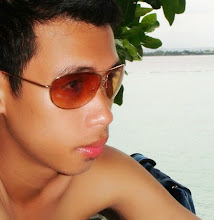
This article is from http://www.travelandleisure.com/
articles/city-of-the-future-october-2004/.I want you to make comments about this country.
City of the Future?
Dubai isn't just remaking its skyline, explains Lee Smith—it's becoming the Arab world's most ambitious social and economic experiment
From October 2004
By Lee Smith
In the past few years, Dubai—the most glamorous of the United Arab Emirates' seven sheikhdoms—has become famous for forward-thinking hotels such as the sail-shaped Burj Al Arab, and audacious building projects such as the Palm and the World, two massive collections of man-made islands that are taking shape offshore. On my recent visit to the emirate, people were buzzing about yet another new development, a $5 billion entertainment complex called Dubailand that will be built in the desert. Scheduled to open in 2007, Dubailand will include aquatic- and dinosaur-themed amusement parks, a space-age hotel, and the world's largest shopping center.
All this is part of ruler Sheikh Mohammed bin Rashid Al Maktoum's plan to wean the local economy off its dependence on oil, in part through tourism. According to the World Tourism Organization, Dubai had the world's highest growth rate in tourism in 2002. Last year, the emirate attracted nearly 5 million visitors, 38 percent more than in 2001. Dubailand is expected to boost tourism to 20 percent of the emirate's GDP.
Dubai's diversified economy—with large investments in the technology and information industries as well as tourism—has made it an increasingly popular place for international companies to do business, but what struck me most in Dubai was how much the city's ongoing transformation is being debated. Locals are wondering what kind of future Dubai is building toward—and whether it's one they want.
"There has to be more to a place than doing business," Jihad Fakhreddine, an analyst at the Pan-Arab Research Center, told me one afternoon at his office. The 47-year-old Lebanese expatriate had recently returned from Iraq, where he'd conducted polling for Gallup International. "I felt more attracted and attached to Baghdad after forty days than I do to Dubai after thirteen years." Unlike Iraq, Dubai is stable and rich, but what concerns Fakhreddine is that the emirate's cultural com- placency may shape the future of the Arab world. "There is no interest here in forming a culture that would make this country unique," he said. "We aren't asking things like, 'What does it mean to be an Arab? Is Dubai even an Arab city at all?'"
That is a complicated question. With between 80 and 90 percent of Dubai's population made up of foreign workers, from Pakistani laborers to Western executives, the answer is: maybe not. "Dubai's fundamental issue is demographic," Abdelkhaleq Abdulla, an Emirati native who runs a political science think tank, told me a few days later. "How can locals accept that they're a minority in their own country? Yet the economy is tied to the presence of expats.
"There are a lot of locals who look to the past and think the old ways were best," Abdulla continued. "And there are also a lot of people worried about the future. They're afraid the bubble will burst and everyone will go home."
While there is concern that the Islamist insurgency in Saudi Arabia could cause problems throughout the Persian Gulf, it is precisely Dubai's building boom that may make Abdulla's nightmare scenario less plausible. Much of the emirate's pricey new real estate—a substantial portion of developments such as the Palm—is being purchased by non-Arab, non-Muslim foreigners, giving them a greater stake in the city's future.
It's not far-fetched to think that outsiders could someday play as important a part in Dubai's political life as they have in its economy. The emirate may be a model of openness in the region, but it still suffers from a democracy deficit. And since Westerners are accustomed to political participation in their homelands, one possible incentive to keep the expat labor force in Dubai could well be democracy. "Political participation is the next step for us," Abdulla told me. "It has to come."
The question remains whether a multi-ethnic, democratic society really is possible here. Of course, that's exactly what the 21st century was supposed to look like, before September 11 left many wondering if it would instead become a jet-age reprise of historic clashes. After visiting Dubai, I found it reassuring to find that this is, in fact, a place—in the Arab world, no less—still considering that once-shared vision of the future.






No comments:
Post a Comment